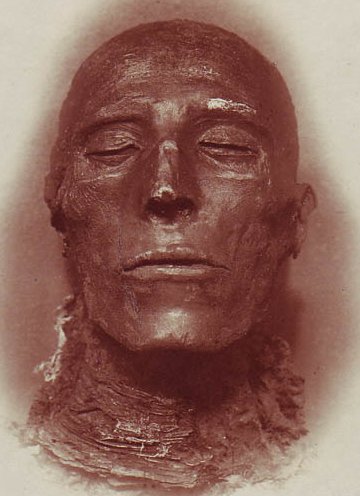
“The Mirrors of Tuzun Thune” is Robert E. Howard at his most poetic. His writing had made a quantum leap forward in quality compared with his earlier Kull stories as he transitions from working in familiar genres to blazing a trail none had attempted before him. More than his gift for well-turned phrases and imagery so powerful, it literally sears itself in the reader’s mind; Howard reaches for a depth of character and achieves a work that is both psychologically and philosophically rewarding. Sadly, as the author would later tell his friend, Clyde Smith that he was disappointed in the result and had resolved to never attempt anything so deep again.
The tale starts off with Kull, plagued with ennui and yearning for something more substantive than riches, power, and transient beauty. The brooding king rejects the company of loyal Brule, the Pict who won the king’s respect and friendship in “The Shadow Kingdom,” but foolishly takes the advice of an alluring Eastern female. In Howard’s world view (and in truth, a pulp convention of the day), the exotic female generally proves untrustworthy and the nameless beauty who appears at the beginning and the conclusion of “The Mirrors of Tuzun Thune” proves no exception.
The girl appeals to Kull’s desire for spiritual sustenance. She promises him that the wizard, Tuzun Thune possesses hidden knowledge of what was and will be and is able to converse with the dead. The allure of the occult is enough to send Kull, whose pagan faith in Valka is apparently as unfulfilling as his earthly riches, in search of the hidden knowledge promised by the Eastern wizard. Yet when Kull visits the house of Tuzun Thune, he finds the wizard interested in little more than verbally sparring with the barbarian king.
Just as Kull appears to tire of the wizard’s bantering, Tuzun Thune tempts him into gazing into his mirrors with the promise of wisdom for “mirrors are the world.” Kull gazes and is bewitched by his own reflection and is immediately confronted by the thought that his reflection might in fact be the real him and that he is only the reflection. This is more than just a passing primeval fear, but the recurring thought that keeps Kull mesmerized day after day even at the exclusion of viewing the distant prehistoric past or the far-flung future.
Kull is momentarily distracted to see the world map of the present radically altered in centuries to come. The wizard responds with what might be the author’s own code of existence,
“Time strides onward, we live today, what care we for tomorrow or yesterday? The Wheel turns and nations rise and fall; the world changes, and times return to savagery to rise again through the long ages….The nations pass and are forgotten, for that is the destiny of man….I brood not over the lost glories of my race, nor do I labor for races to come. Live now….The dead are dead, the unborn are not. What matters men’s forgetfulness of you when you have forgotten yourself in the silent worlds of death?”
Recognizing the barbarian’s fears, Tuzun Thune asks him the very thought Kull fears to voice, “…is it in truth you?” Kull expresses his deepest fear when he replies, “Which of us is the ghost of the other? Mayhap these mirrors are but windows through which we look into another world.” This is indeed the truth of fiction rendered in terms of pure poetry. As much as Kull may be Howard’s alter ego, so too is Tuzun Thune for it is the wizard that, like the author, draws readers into other worlds of both dream and nightmare and dares to make us question who we are and what is real.
Kull asks the question that man asks today as much as in centuries past, “Tell me, wizard who are wiser than most men, tell me, are there worlds beyond our worlds?” The wizard’s enigmatic reply links us back to the spiritual yearning that gripped Kull’s consciousness at the story’s outset, “A man has eyes, let him see, who would see must first believe.”
Howard’s father was intrigued by the writings of Madame Blavatsky and the author shared his father’s interest in Theosophy. Howard expresses this here by having Kull on the verge of astral travel when Tuzun Thune tells him (sounding exactly like a student of Theosophy, himself), “See and believe, man must believe to accomplish. Form is shadow, substance is illusion, materiality is dream; man is because he believes he is; what is man but a dream of the gods? Yet man can be that he wishes to be; form and substance, they are but shadows. The mind, the ego, the essence of the god-dream – that is real, that is immortal. See and believe, if you would accomplish, Kull.”
It is fitting that it is the noble Pict, Brule who rescues Kull from dissipating into astral nothingness and passing forever into the world hidden behind the mirrors. Brule rejects belief in the occult and shuns any sign of its reality. Kull recognizes the wisdom of this, but is haunted by having come so close to answering one of man’s eternal questions. There remains a lingering regret that he did not complete the experiment. It is also fitting that Howard, who would explore similar territory in “The Tower of the Elephant,” initially determined to avoid returning to theosophical stories in the future and yet as the later Conan adventure demonstrates, like Kull, Howard longed to peer behind the veil of this life and into the next.







.jpg)